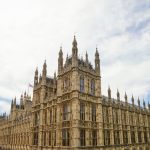The race for a new leader of the Scottish National Party (SNP) has begun after Nicola Sturgeon’s surprise resignation.
Who are the possible contenders for the role of leader and first minister of Scotland?
Live – Bold prediction from Labour frontbencher after Nicola Sturgeon announces shock departure
Keith Brown
Keith Brown is the current deputy leader of the SNP, serving in this role since 2018.
He has been an MSP since 2007, representing Clackmannanshire and Dunblane constituency since 2011.
The 61-year-old has had a long ministerial career, serving in briefs including schools and skills, transport and infrastructure, and the economy.
He was appointed secretary for justice and veterans in 2021. Born in Edinburgh, he is a veteran of the Falklands War.
Kate Forbes
Kate Forbes is the SNP’s finance and economy secretary and has held this role since February 2020.
Ms Forbes hails from the Highlands but spent several years of her childhood in India.
She was first elected to Holyrood in 2016 for the Skye, Lochaber and Badenoch constituency.
Ms Forbes told the New Statesman last year she has an “unusual backstory, a very different world from my peers”.
She is more politically centrist than her SNP peers and is a member of the evangelical Free Church of Scotland, which opposes same-sex marriage and abortion.
The 32-year-old is currently on maternity leave after giving birth to her first child in August.
Political reporter
Nicola Sturgeon has announced her intention to resign once a successor as leader of the Scottish National Party (SNP) has been elected.
But how does the SNP elect its next leader?
Those wishing to put themselves forward as candidates for leader of the SNP must have at least 100 nominations from party members from at least 20 of the party’s local branches.
If there is more than one candidate, there will be an election in which all party members are eligible to vote. The vote is run on a one-person-one-vote postal voting system.
Unlike at Westminster, where a prime minister is appointed by the King under the royal prerogative, the first minister of Scotland is nominated for appointment by Members of the Scottish Parliament (MSPs).
This takes place when a first minister resigns, like Ms Sturgeon has, or following an election.
Theoretically, any MSP could become first minister. In practice, they will be the leader of the party with the most MSPs – currently the SNP.
Under section 46 of the Scotland Act 1998, once a first minister has tendered their resignation to the King, the Scottish Parliament has a period of 28 days in which to nominate one of its members for appointment as their successor.
A candidate to become the new first minister must be an MSP.
MSPs are asked to cast their vote for their preferred candidate. A separate vote is held for each one.
The results are then verified and announced by the presiding officer. The successful candidate is elected by a simple majority.
The presiding officer of the Scottish Parliament then recommends to the King that he appoint the winning candidate as first minister of Scotland.
With the agreement of the Scottish Parliament, the new first minister will then appoint ministers from among other MSPs “with the approval of His Majesty”.
Read more:
Nicola Sturgeon announces resignation
The recent controversies which piled pressure on Sturgeon
Angus Robertson
Angus Robertson is the current constitution, culture and external affairs secretary but has had a long career in the SNP dating back from Alex Salmond’s leadership of the party.
He was the leader of the SNP in Westminster for 10 years, from 2007 to 2017.
Mr Robertson, 53, was also voted to be deputy leader of the SNP by party members in 2016, holding that position for two years.
He lost his Westminster seat to current Scottish Conservative leader Douglas Ross in 2017 and was elected as the MSP for Edinburgh Central in 2021.
Humza Yousaf
Humza Yousaf was elected as an MSP for Glasgow in 2011. At 26, he was the youngest MSP elected to Holyrood at the time.
Now 37, he has been the secretary for health and social care since 2021 at a time of huge pressure on the NHS.
He previously served as justice secretary from 2018 to 2021, as well as holding junior ministerial posts in external affairs and international development, Europe and transport.
Mr Yousaf is the first non-white and first Muslim cabinet minister in the Scottish government.






















